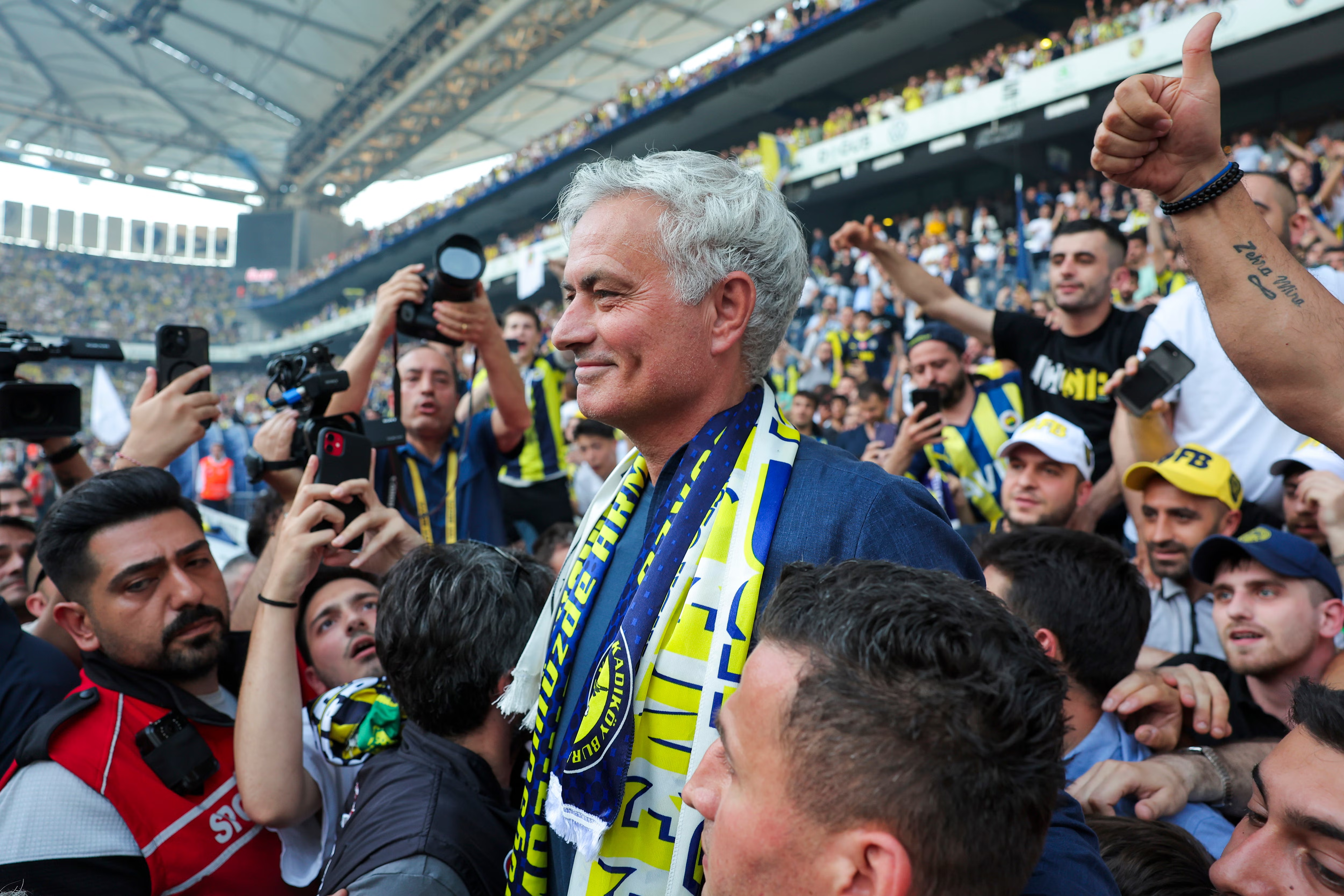Jose Mourinho has made a shocking revelation about turning down the England job twice, explaining his commitment to club football and his current role at Fenerbahce.

Jose Mourinho has long been known for his dedication to club football, but recently, the Fenerbahce boss revealed that he had twice turned down the chance to manage England. These revelations provide a fascinating glimpse into Mourinho’s decision-making and how his priorities have shaped his career path.
As the new head coach of Fenerbahce, Mourinho was quick to clarify his stance on international football. “I had the opportunity twice to be the coach of England, but I refused both times,” he stated. His decision, rooted in a commitment to day-to-day management, highlights Mourinho’s unwavering focus on club football.
A History of Club Success
Mourinho’s career has been synonymous with success across various top clubs, including Chelsea, Inter Milan, Real Madrid, and Manchester United. His return to Fenerbahce earlier this year marks yet another chapter in his illustrious journey. The idea of coaching a national team, particularly England, was tempting but didn’t align with his professional philosophy.
The Special One has always been drawn to the intensity and challenges of club football, which provides continuous engagement in matches, tactics, and player development. “I am the type of coach that wants to play every week, wants to train every day,” Mourinho explained. His hands-on approach has led to major triumphs such as the Premier League, La Liga, and the Champions League. The dynamic environment of club football remains the perfect fit for his managerial style.
Why Jose Mourinho Rejected England Job
Mourinho’s choice to reject England is not based on a lack of respect or interest but rather a recognition of the differences between international and club football. In international management, there are fewer games and extended periods without competitive fixtures. The long breaks and inability to train players daily do not appeal to Mourinho’s coaching style.
Furthermore, Mourinho’s statement reflects his enduring commitment to club roles where he can have a direct impact. “For me, the job of a coach is to coach and work every day,” he emphasized. His refusal of England’s offers, despite their prestige, illustrates that the allure of club football far outweighs the prospect of an international position for him.
Mourinho’s experience with elite clubs has provided him with an opportunity to consistently prove himself. By remaining in club football, he can continue competing at the highest level, something that international management simply does not offer on the same scale. The high stakes and constant need to adapt are key aspects of what fuels his passion for coaching.
Fenerbahce and the Future
Now leading Fenerbahce, Mourinho has a fresh challenge ahead in Turkey’s Super Lig, where he is expected to bring the same level of tactical brilliance and leadership that have defined his previous tenures. His commitment to Fenerbahce signifies that Mourinho still has plenty to give in club football. “I’m happy where I am,” Mourinho declared, reinforcing his focus on Fenerbahce.
The decision to remain in club football rather than transition to international roles shows that Mourinho’s career choices are not just about prestige but also about maintaining his daily involvement in the game. Whether in England, Italy, or Turkey, Mourinho’s love for the club format remains stronger than ever.
















